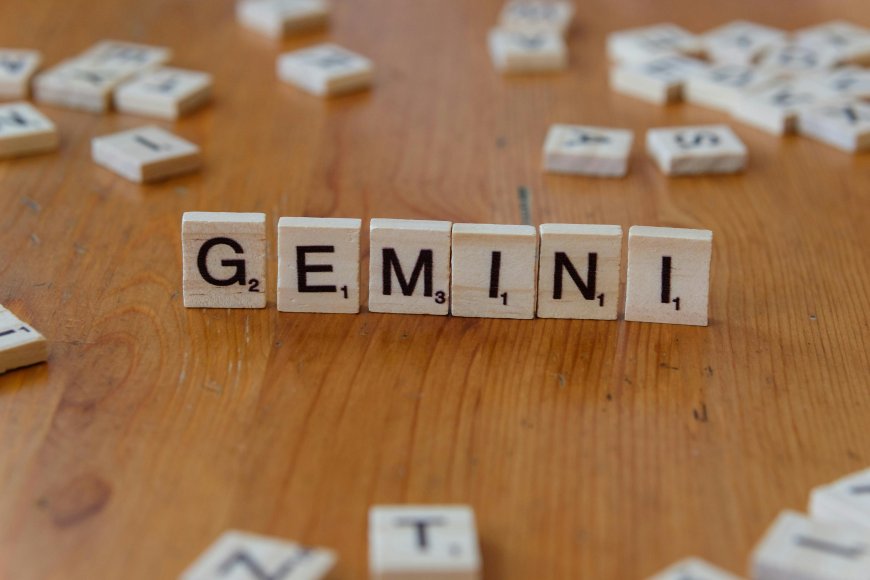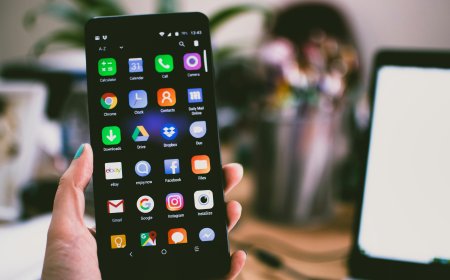Google Stock Jumps as Apple Eyes Gemini AI for Siri
Apple may bring Google’s Gemini AI into Siri. Alphabet shares climb as the rivalry between two tech giants takes a surprising turn.

A Surprise That Shook Silicon Valley
On Friday, Wall Street traders got the kind of jolt they live for. Alphabet shares surged more than 3% after reports emerged that Apple is in talks to integrate Google’s Gemini artificial intelligence into Siri. For years, the two companies have been cast as rivals—one building the iPhone empire, the other dominating the search and AI landscape. But this potential collaboration suggests a new era of pragmatism, where even fierce competitors may need each other to survive in the AI arms race.
The possibility of Siri powered by Gemini doesn’t just hint at a technical upgrade. It reveals the shifting alliances shaping the future of artificial intelligence—and it could redefine how hundreds of millions of iPhone users experience their devices.
Why Apple Might Need Google’s Gemini
Apple has long prided itself on its self-sufficiency. From designing its own chips to carefully crafting its software ecosystem, the company has historically resisted relying on external tech giants. But in the realm of AI, Apple has struggled to keep pace.
While OpenAI, Anthropic, and Google have released headline-grabbing chatbots, Apple’s AI progress has seemed muted, hidden behind vague promises of “on-device intelligence.” Siri, once a revolutionary assistant, has lagged far behind competitors like Amazon’s Alexa, Google Assistant, and ChatGPT-powered bots.
Google’s Gemini, however, has emerged as one of the most powerful large language models, regularly topping industry benchmarks. By exploring a deal with Google, Apple could instantly inject advanced generative AI capabilities into Siri without waiting years to catch up.
Investors Cheer the Prospect
Markets love a good narrative, and Friday’s surge in Alphabet shares tells the story plainly. Analysts see three immediate reasons why investors reacted so strongly:
- Revenue Prospects: A partnership could extend Google’s lucrative role as the default search provider on iPhones, which faces regulatory threats in the U.S. and Europe.
- Validation of Gemini: Apple’s stamp of approval would be a massive endorsement of Google’s AI technology.
- Competitive Pressure on Microsoft: If Siri becomes smarter with Gemini, Apple and Google could jointly counter Microsoft’s partnership with OpenAI.
For Apple, the deal could reassure investors that it has a coherent AI strategy at last. For Google, it signals new pathways for monetizing Gemini outside its own ecosystem.

Behind the Scenes of a Fragile Alliance
Despite the excitement, the relationship between Apple and Google has always been complicated.
- Search Placement: Google currently pays Apple billions annually to remain the default search engine on Safari. That deal is under intense scrutiny by regulators who argue it stifles competition.
- Ecosystem Rivalry: Apple continues to push its privacy-first narrative, often at odds with Google’s advertising model.
- AI Trust Issues: Apple’s brand is built on reliability and security, and outsourcing its AI brain to a competitor carries reputational risks.
Yet history shows that pragmatism often wins. Just as Apple relied on Microsoft Office in the 1990s to sustain its Mac business, the company may now turn to Google to ensure Siri isn’t left behind.
A Personal Story: When Siri Stopped Being Smart
To understand why this matters, think back to the early days of Siri. In 2011, when Apple first unveiled the assistant on the iPhone 4S, it felt like science fiction brought to life. You could ask about the weather, set reminders, or even request a restaurant recommendation—all with your voice.
For many users, Siri became part of daily life. But over time, enthusiasm waned. “I stopped asking Siri anything beyond setting timers,” said one longtime iPhone user in New York. “Whenever I needed a real answer, it just wasn’t reliable.”
This sense of disappointment is widespread. While competitors launched conversational chatbots capable of writing essays or generating code, Siri remained largely static. For many Apple loyalists, the magic was gone. A Gemini-powered Siri could rekindle that spark.
What a Gemini-Siri Hybrid Might Look Like
Although details of the talks remain private, industry watchers have speculated on what users might gain if Apple adopts Google’s Gemini:
- Smarter Conversations: Natural, context-aware interactions, allowing Siri to understand nuance and remember context.
- Generative Abilities: Writing, summarizing, or creative tasks done directly on iPhone or iPad.
- Multimodal Features: Integration of text, voice, and images, aligning with Gemini’s multimodal design.
- Global Knowledge Base: A far broader and more accurate knowledge repository than Siri’s current setup.
The implications are profound: Siri could finally evolve from a simple command-based tool into a true personal assistant.
The Geopolitics of AI Partnerships
Beyond consumer features, this potential deal carries geopolitical significance. The U.S. government is already scrutinizing Google’s dominance in search. Regulators may question whether a Gemini-Siri partnership concentrates too much power in one company’s hands.
Meanwhile, Apple’s competitors will be watching closely. Microsoft, through its alliance with OpenAI, has integrated AI across Windows and Office. Amazon continues to experiment with Alexa’s generative AI upgrade. If Apple and Google align, it could redraw the competitive map, forcing rivals to recalibrate their strategies.
Risks and Challenges Ahead
The road to a Gemini-powered Siri is far from straightforward. Several challenges could derail the plan:
- Privacy Concerns: Apple has built its reputation on privacy. Integrating Google’s model might raise questions about data sharing.
- Technical Integration: Marrying Apple’s tightly controlled ecosystem with Google’s AI could prove complex.
- Regulatory Scrutiny: Authorities in Washington and Brussels may see this as further entrenchment of Big Tech power.
- Consumer Expectations: If the upgrade underwhelms, Apple could face backlash for relying on a rival’s technology.
Still, the fact that talks are happening at all signals Apple’s recognition that the status quo is unsustainable.
Conclusion: A Turning Point for Both Giants
Whether the deal materializes or not, the news alone has changed perceptions. Apple, long criticized for moving too slowly in AI, is now seen exploring bold options. Google, once a rival locked in combat with Apple, may soon become its most critical ally in the AI era.
For investors, it’s a reminder that in Silicon Valley, yesterday’s competitors can become today’s partners. For users, it raises the tantalizing possibility that Siri might finally become the assistant Apple once promised.
The next few months will determine whether this partnership becomes reality—or just another rumor in the tech world. But one thing is clear: the AI race is too important for even the fiercest rivals to fight alone.
FAQs
1. Why did Google shares rise on the Apple news?
Alphabet stock jumped after reports suggested Apple may use Google’s Gemini AI for Siri, signaling potential revenue growth and validation of Gemini’s technology.
2. What is Gemini AI?
Gemini is Google’s large language model, designed to handle natural conversation, reasoning, and multimodal tasks like integrating text, images, and voice.
3. Why would Apple use Google’s AI instead of its own?
Apple has been slower in AI development compared to rivals. Partnering with Google would allow it to quickly enhance Siri’s intelligence.
4. Could regulators block the deal?
Yes. U.S. and European regulators may raise antitrust concerns, given Apple and Google’s existing search engine agreements.
5. When might Siri get Gemini integration?
No timeline has been confirmed. Reports suggest discussions are ongoing, and integration would depend on technical, regulatory, and business considerations.
What's Your Reaction?
 Like
1
Like
1
 Dislike
0
Dislike
0
 Love
0
Love
0
 Funny
0
Funny
0
 Angry
0
Angry
0
 Sad
0
Sad
0
 Wow
0
Wow
0





































































